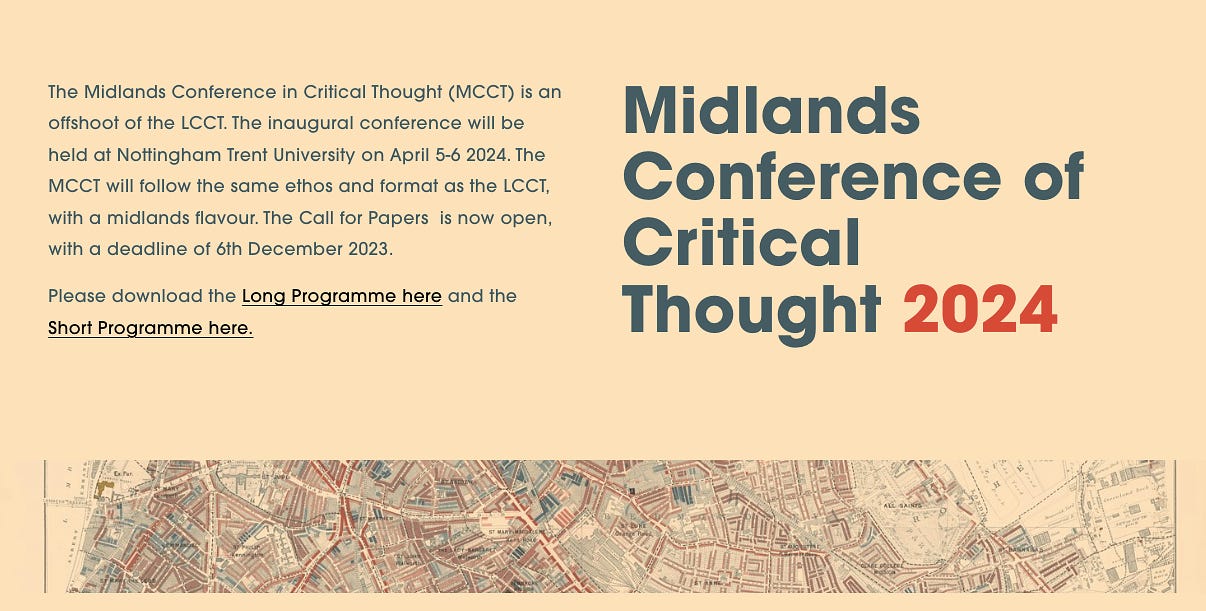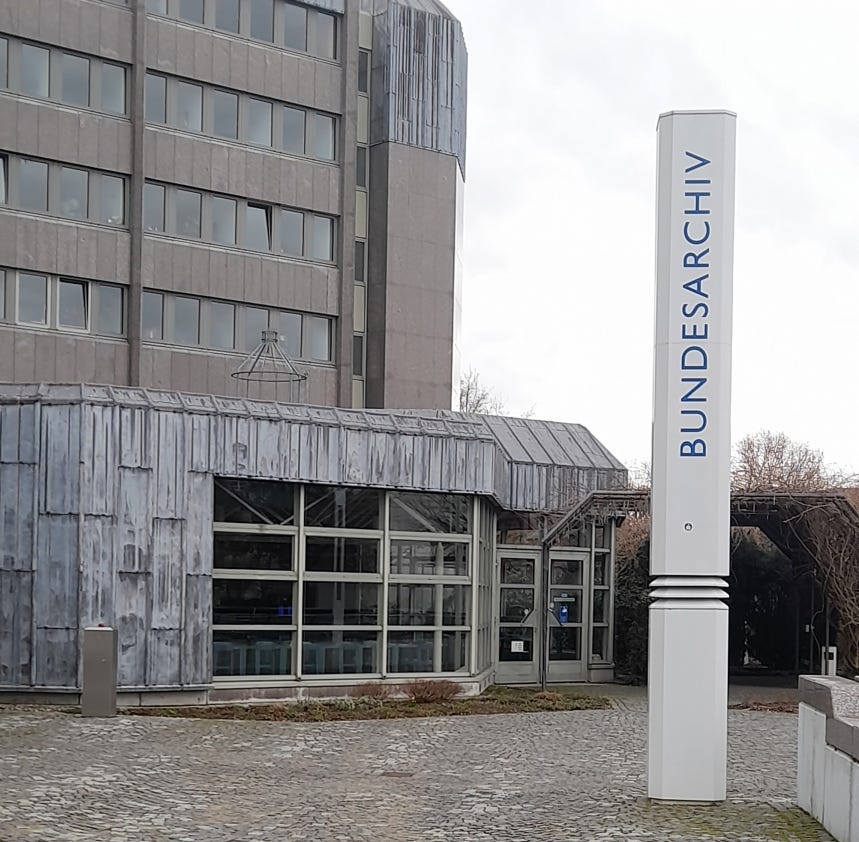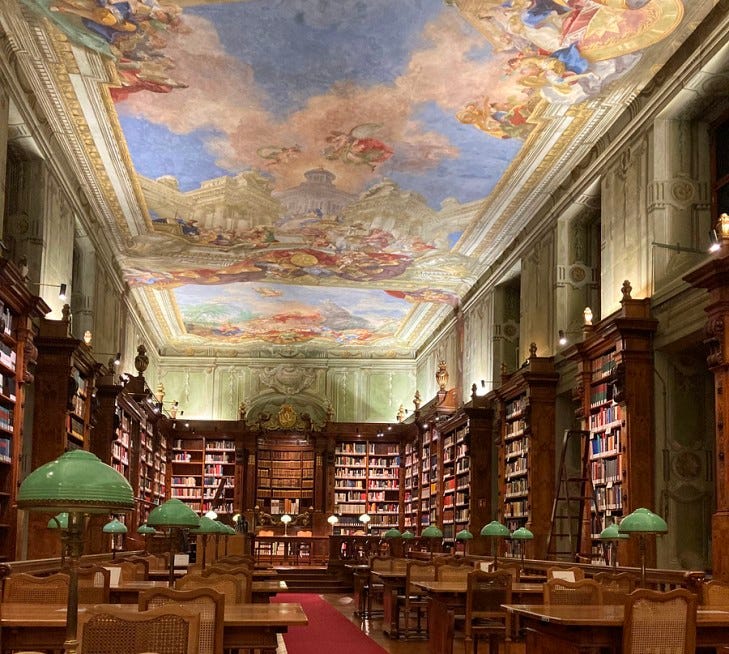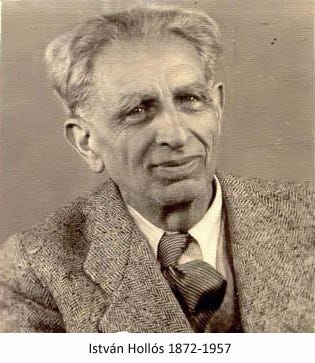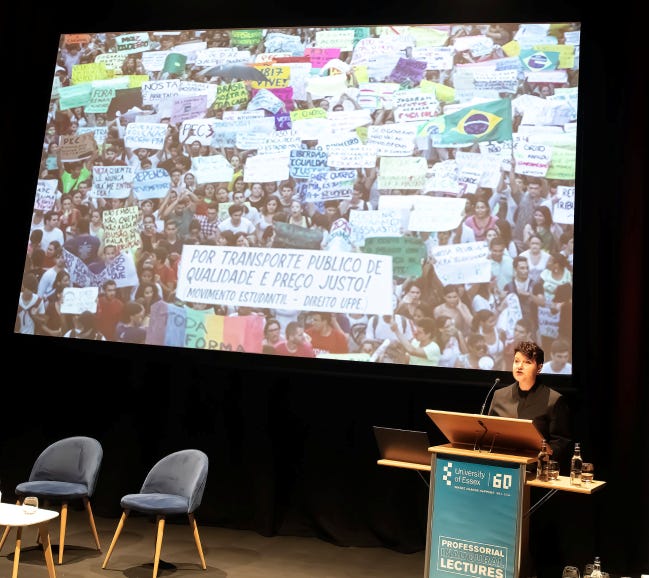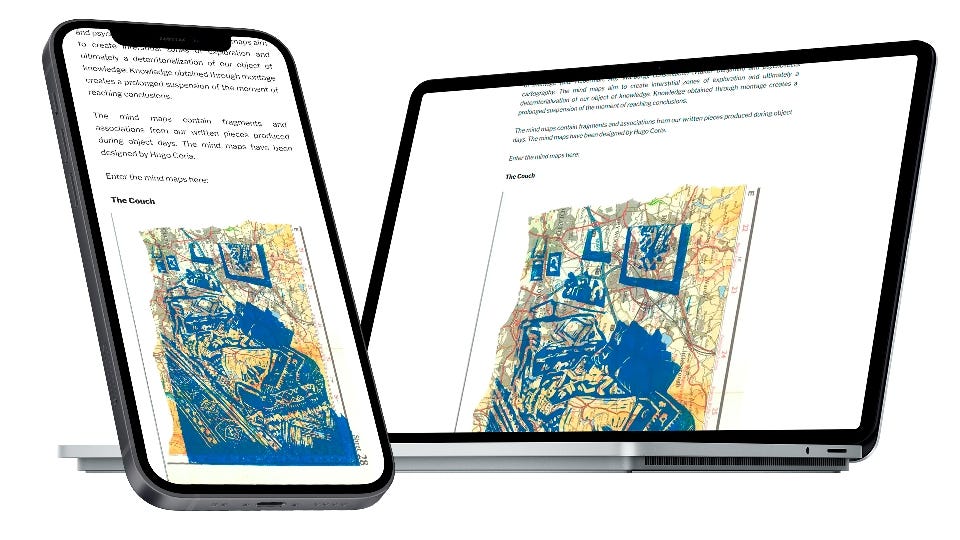FreePsy News 4
Welcome to the 4th FREEPSY newsletter!
This edition contains information about upcoming conferences, research trips to Berlin and Vienna, the forthcoming publication of My Farewell to the Yellow House by István Hollós (1927), which may be regarded as the first work of ‘Anti-Psychiatry’ in the psychoanalytic literature, and a glimpse into the role of visual art practice in the FREEPSY project. We also celebrate the Inaugural Professorial Lecture of the FREEPSY project leader, Raluca Soreanu, and unveil the first of our FreePsy ‘Mind Maps’.
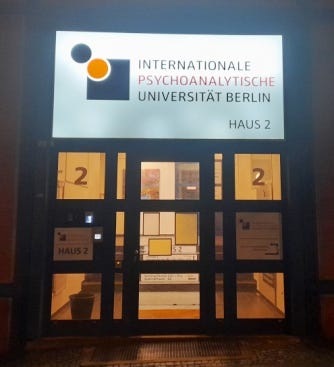

Free Clinics and a Psychoanalysis for the People: Progressive Histories,
Collective Practices, Implications for our Times
“[M]y goal is nothing more than to shine a light on certain calamitous prejudices and to leave the thinker to ponder.”
István Hollós “My farewell to the yellow house”
Midlands Conference in Critical Thought 2024
April 5-6 Nottingham
The FREEPSY collective is hosting a series of panels on the theme of ‘Mental Health Commons: Fantasy, Utopia and Infrastructure’ at the upcoming Midlands Conference in Critical Thought, taking place on April 5-6 at Nottingham Trent University.
The event is in-person only, free to attend and open to all, non-hierarchical and de-centralised. We are expecting a dynamic and really interesting few days, as this is the first Midlands offshoot of the traditional and radical London Conference in Critical Thought, which has taken place every year since 2011. If you are interested in joining us for this exciting event in Nottingham, you can register for free on the conference’s registration page here and secure your tickets.
Our stream will include five different panels, with scholars of different countries, generations and conceptual orientation. It promises to be a very creative and unmissable debate!
Continue reading to learn some more about our working-concept of ‘mental health commons’ and to have a look at the paper titles and participating speakers of our panels over Friday and Saturday.
What are ‘mental health commons’?
This strand, titled Mental Health Commons: Fantasy, Utopia and Infrastructure, invited contributions ranging from history, to psychoanalysis, social and cultural theory, to ethnography and beyond, which aim to understand practices related to commons and undercommons (Harney & Moten 2013) in the field of mental health. We ask how the offer of care can be organised in a radical way, reconfiguring states of fantasy and crystalising utopias in the social field at large, and, by doing so, create new infrastructures, where resources can be arranged in alternative anti-capitalist, antiracist and antipatriarchal ways.
Mental health commoning is the work of actively weaving and sustaining communities of collaboration and action around the dimension of life that has to do with psychic suffering. Commoners of radical mental health initiatives manufacture and use resources and goods by collectively creating rules of production and use, improvising and revisiting these rules on an ongoing basis, in response to particular socio-economic and socio-ecological situations. Such initiatives, experiments and practices prefigure new modes of self-governance grounded in the common participation of all people, horizontality, anti-hierarchy, in pluralism and openness. This strand aims to further conceptualise ‘mental health commons’, as well as to document sites, cases, collectives and practices which can ground these conceptualisations.
The Call for Papers produced an incredible response, as you can see from the programme we have assembled.
Mental Health Commons: Fantasy, Utopia and Infrastructure
PANEL 1 FRIDAY APRIL 5th 9:30-11:00
‘Writing Out of This World’: Restoring Texts from the Archive of Psychosis
Speaker: Matt ffytche (University of Essex, UK)
Dig a hole and step inside: On collective wounds and artistic interventions in public sites
Speaker: Magda Schmukalla (University of Essex, UK)
PANEL 2 FRIDAY APRIL 5th 11:30-13:00
The movements of listening: Cartography of the psychosocial care offered to immigrants, refugees, and asylum seekers.
Speaker: Gustavo da Silva Machado
Dispersed Transference: Francesc Tosquelles and the Saint-Alban Hospital
Speaker: Candela Potente
PANEL 3 FRIDAY APRIL 5th 14:00-15:30
Conversations and Scraps: Free clinic experience in a southern Brazilian city
Speakers: Gustavo da Silva Machado, Dr, Fabiana Wolff Kogi, Isadora Sammi Clausen, Jade da Silveira Fraga, Kleriane Napp Ribas
Psychoanalysis and the politics of common
Speakers: Aline Rubin, Clarice Paulon and Augusto Coaracy (São Paulo, Brazil)
The boom of ‘Social Clinics” of psychoanalysis in Brazil from 2017-2022: Current movements and their discourses
Speaker: Paula Costa Camarão, University of São Paulo, Brazil
PANEL 4 FRIDAY APRIL 5th 16:00-17:30
The Psychoanalytic Treatment of Psychosis: Towards a Psychosocial Ethnography and a Clinical Anthropology
Speaker: Alexander Miller
In Defense of Psychosis.
Speaker: Kendra Terry
Jung’s Approach to Psychosis – A Relevant Model for the Present Day
Speaker: Andrew Howe
“All of us, doctors included, have psychological blind spots when it comes to mental illness.”
István Hollós “My farewell to the yellow house”
PANEL 5 SATURDAY APRIL 6th 9:30-11:00
Alone Together: A Brief Inquiry into Political Economy of Affect and Emotion
Speaker: Rifki Akbar Pratama
Considerations on the Popular Teaching of Psychoanalysis
Speaker: Luíza Girolamo Canato Magro
Register for free to attend this event in person:
You can also download the short programme and the long programme (with abstracts) of the whole conference. Scroll down the London Critical website for the Midlands Conference.
Research trip to Berlin
Ana Tomcic
Between the 13th and 27th of February, our researcher Ana Tomcic spent two weeks in Berlin, conducting archive research and making contact with local groups. Here are some of the highlights from her trip.
1) The Psychoanalytic Library in Berlin is not only well known for its collection of contemporary and historical psychoanalytic literature (particularly Lacanian), but is also home to the Open Counselling Clinic (die offene Sprechstunde), taking place every Thursday from 5 to 7 pm. Here, local psychoanalysts offer sessions for free. The sessions are open to anyone and are currently being held in German, English, French, Italian, Spanish, Portuguese, Luxembourgish and Danish. More information about the clinic will soon be available via our Free Clinics Network or you can contact them directly at kontakt@psybi-berlin.de. The Psychoanalytic Library regularly hosts events and workshops related to psychoanalytic theory and practice. If you are ever in Berlin, do have a look at their events programme.
2) Our project was presented at the Berlin Forum for the History of Psychoanalysis, an informal regular meeting organised by a local group of historians and analysts to discuss the newest publications in the field of psychoanalytic history. Ana Tomcic presented her latest research on psychoanalytically oriented therapeutic communities that worked with antisocial children and adolescents (soon to be published in the journal Psychoanalysis and History). The evening gave rise to a fruitful and animated discussion. We are particularly grateful to Ludger Hermanns for all his support and advice regarding newest publications and archival material.
“We will ... discuss later whether it is really a mistake for a doctor to become a psychiatrist. Certainly, there is a close connection between the doctor and the mental patient. The difference, however, is that: The patient can recover, but the doctor is never cured.”
István Hollós “My farewell to the yellow house”
3) The state archive in Koblenz (on the other side of Germany, near Cologne and Bonn) is not only home to sensitive political documents, but also to the archive for the history of psychoanalysis (Archiv zur Geschichte der Psychoanalyse), one of the most significant archival collections of historical psychoanalytic material in Germany. A visit to this archive proved very fruitful in uncovering a wealth of material about forgotten psychoanalytic figures.
4) In the course of the archive research in Berlin and Koblenz, we got better acquainted with the heritage of three fascinating figures.
Nelly Wolffheim, born and raised in Berlin, first turned to psychoanalysis due to her own physical and mental struggles. After being analysed by Karl Abraham and Karen Horney, she decided to combine psychoanalysis with her work in education and opened the first psychoanalytic kindergarten in Berlin. Wolffheim wrote about her experiences and theoretical insights in her book Psychoanalysis and Kindergarten (1930). She was also active in the education of future kindergarten teachers until she was forced to leave Germany in 1939 and to continue her work in London. Here, she was initially faced with numerous difficulties: she had no money and had to survive by doing odd jobs – such as selling toys or working as a model at an art institute – while also trying to adapt to the new language and culture. After the war, she finally returned to her two original passions (psychoanalysis and education), started publishing articles in German newspapers and also presenting on the radio. As a Jewish emigrant living in London, she initially felt conflicted about speaking to the German public, but decided to overcome this barrier in order to be able to share her pedagogical and psychological ideas.


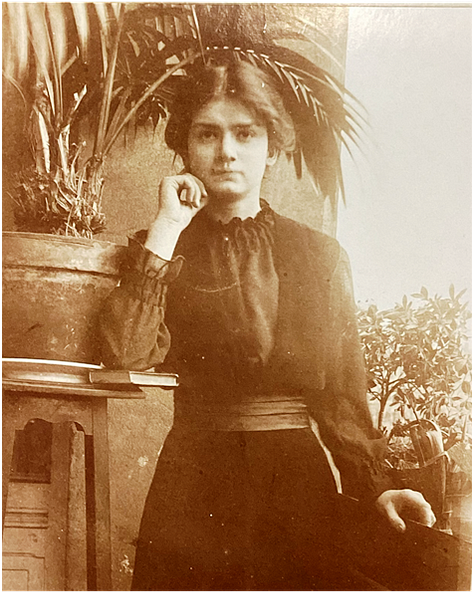
Kata Lévy was a Hungarian psychoanalyst and educator who received her training from Sándor Ferenczi. She was good friends with both Anna Freud and August Aichhorn, the Austrian pioneer in work with antisocial children. Lévy was a lecturer at the Berlin Policlinic and was instrumental in organising counselling sessions for secondary school girls. She also advised Erszébet Farkas who ran a foster home for Jewish children before and during World War II. You can find out more about Lévy and Farkasz in Anna Borgos’ book Women in the Budapest School of Psychoanalysis and in the recently published Early Women Psychoanalysts: History, Biography, Contemporary Relevance (ed. Klara Naszkowska).
Käthe Dräger was a left-wing analyst who was also very active in the field of psychoanalysis and education both before and after World War II. Having worked as a teacher and in psychoanalytically oriented child guidance clinics, she wrote about the effects of neglect and abuse on child development. She also worked as an editor of an important psychoanalytic journal and was a key figure in the revival of psychoanalysis on German territory following the devastation of World War II.
The trip was rounded off with several visits to local bookstores and the library of the International Psychoanalytic University.
The legacy of the Berlin Polyclinic, the first free psychoanalytic clinic to open its doors to the public in 1920 – a legacy directly invoked in the brochure of Open Counselling – is still very much alive in the German capital, but as well as in other centres working with refugees and war survivors throughout Germany. We hope it continues to thrive and grow!
“Those who are sick and those who are healthy both carry the past around within them.” István Hollós “My farewell to the yellow house”
Research trip to Vienna
Lizaveta van Munsteren
During her research trip to Vienna, our postdoc Lizaveta van Munsteren visited a number of important sites: the Freud Museum, with its extensive archives and large psychoanalytic library; the Austrian National Library, containing various letters of members of the psychoanalytic society and collections of old newspapers; and the Vienna Ambulatorium, which was re-opened in 1999 after a long hiatus. Vienna is an important site for studying the history and current practice of free psychoanalytic clinics. Her research focuses on the history of the Ambulatorium and the interdisciplinary connections of psychoanalysis.
The Vienna Ambulatorium was founded in 1922 and was one of the most vibrant early clinics. As Elizabeth Danto has shown in her book Freud’s Free Clinics: Psychoanalysis and Social Justice, 1918-1938, entangled with a series of other progressive developments of the ‘Red Vienna’, the ideas and practices developed around the Vienna Ambulatorium are of exceptional importance to the question of how psychoanalysis is situated in communities, and how it functions as a therapeutic practice. Austro-Marxism brought a unique alliance between liberal arts and the health professions, which infused how psychoanalysis was practised. Apart from Sigmund Freud himself, some of the key figures in Vienna were Wilhelm Reich, Helene Deutsch, August Aichhorn, Anna Freud, Siegfried Bernfeld and Rudolf Ekstein. A number of these analysts (Aichhorn, Freud and Bernfeld) were keen to provide for the psychological needs of children, whose lives were affected by war, discrimination and the economic crisis. This resulted in the establishment of institutions such as Bernfeld’s Kinderheim Baumgarten (Baumgarten Children’s Home), which housed underprivileged and homeless children, including 240 Jewish refugee children, Aichhorn’s experimental training school for juvenile delinquents and the Ambulatorium’s child guidance clinic. Theoretically, these analysts developed the foundations of child analysis, milieu therapy and produced significant findings about the relationship between society and early childhood development. In 1999, a successor of the Vienna Ambulatorium was reopened.
Lizaveta visited the Ambulatorium, where she had a fascinating conversation with Dr Liana Giorgi about the system of psychotherapeutic help in Austria, the provision of free psychoanalytic treatment, and the everyday life of the clinic. The Ambulatorium shares space with other psychoanalytic societies and functions with the support of trainees and senior clinicians.


Lizaveta spent much of her time in the Sigmund Freud Museum. With the fantastic help of archivist Sarah Hönigschnabel and librarian Loïc Kurzweil, she was able to search through museum archival documents. Their hospitality and expertise made Lizaveta’s research visit rich with resources. The library of the museum has a vast collection of books on the early history of psychoanalysis, as well as original publications of the members of the Vienna Psychoanalytic Society. Lizaveta will present her findings at the forthcoming European Society for the History of Human Sciences (ESHHS) Conference, taking place on the 25th to 28th June 2024, at the University of Essex.
“There is no such thing as ‘the mentally ill’. There are people.”
István Hollós “My farewell to the yellow house”
Small Important Books Series
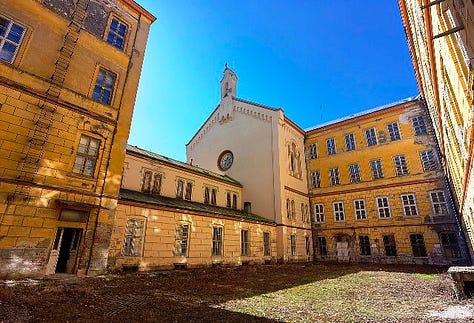
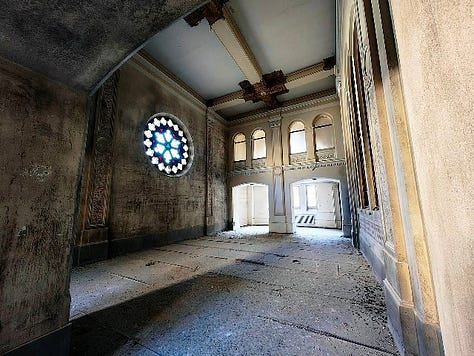
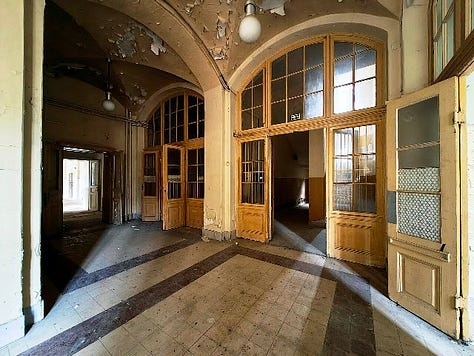
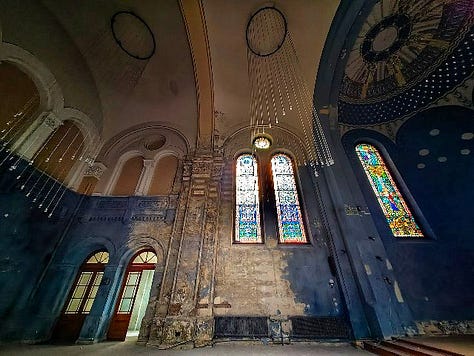
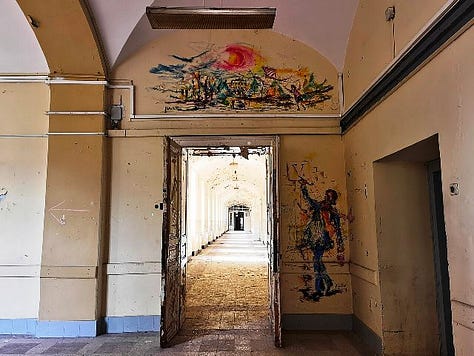
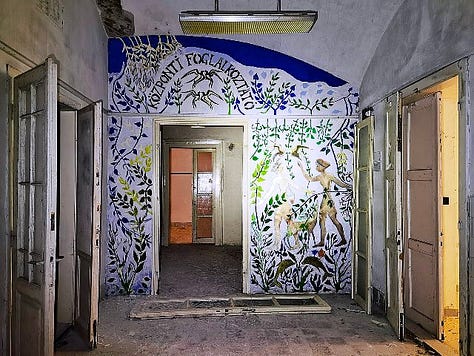
The FreePsy Project collective are planning to translate and publish a series of short books examining the theoretical and clinical engagement of psychoanalysis with social issues. Inspired by the early psychoanalytic movement of free clinics, it aims to bring to the fore the work of psychoanalytic writers who imparted knowledge and engaged in a practice for all people, particularly underprivileged ones. The authors in this series contributed to rethinking fundamental psychoanalytic concepts in a way that allows for different ways of being and living. The objective is to re-imagine psychoanalytic theory and practice in tune with the social justice movement. As pocketbooks at an affordable cost, with the original language and the English translation, we hope these books will bring psychoanalysis to psychoanalysts, psychiatrists and medical professionals, critical thinkers and philosophers, but ultimately to everyone interested in the subject.
The first book in the Small Important Book Series is by Hungarian psychoanalyst, István Hollós. Hollós was born in Budapest in 1872, became a psychiatrist and psychoanalyst, lived through two world wars, and was appointed director of the famous Lipotmezö clinic near Budapest, also known as the "Yellow House". He published extensively, writings that revealed his profound humanity with respect to the mentally ill. He met Sándor Ferenczi at the beginning of the century and participated in the foundation of the Psychoanalytic Association of Budapest (1913), of which he was president from 1933 to 1939. He was forced to retire at the age of 55, reportedly due to his ethnic origins. His book My farewell to the yellow house (1927) came into being after his painful departure from the clinic, and may be regarded as the first book of the ‘anti-Psychiatry’ movement. Positioned firmly within Freudian theory as it was articulated at the time (ego instincts and sexual instincts, life and death drives, and most important of all for Hollós, the theory of the Unconscious), the book nevertheless provides a damning critique of ‘mental health treatment’ that resonates profoundly today. The book is brilliantly translated by Adrian Courage, and publication will coincide with the FreePsy conference Psychoanalysis & Radical Psychiatry in November 2024.
“My objective was to work for the liberation of the mentally ill. I wanted to shine a light on the thicket of archaic prejudices and promote the dream of a new world. It turned out that the question of the mentally ill is just one aspect of a great tangle of social issues. However, this aspect appears to be a suitable starting point in the process of unravelling the whole thing.”
István Hollós “My farewell to the yellow house”
Psychoanalysis & Radical Psychiatry
FREEPSY Conference 2024 - save the date
Friday 15 November (eve) - Sunday 17 November
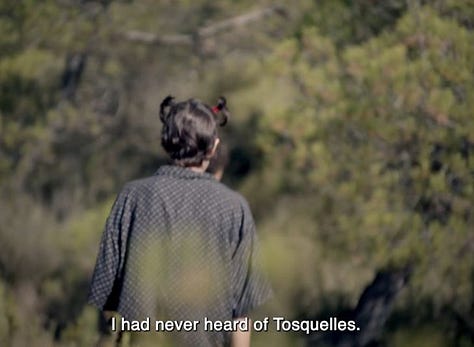


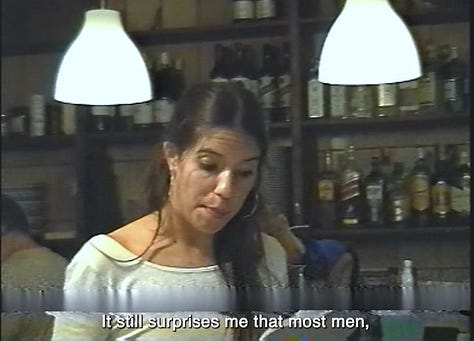
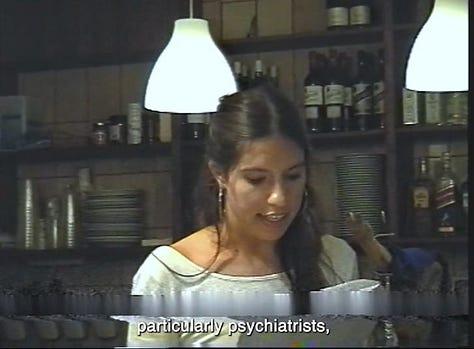
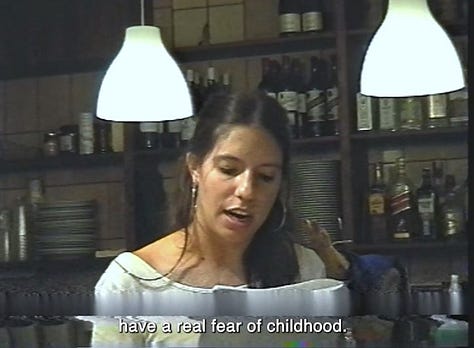
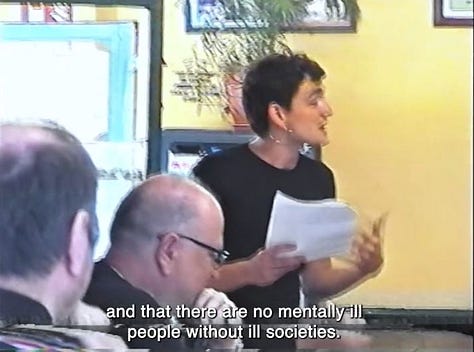
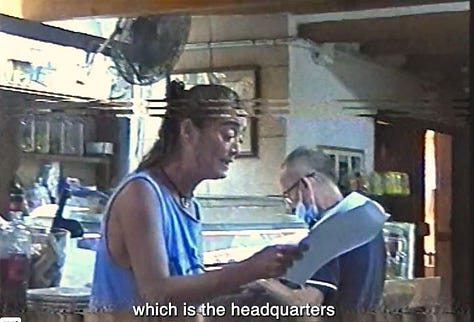

Psychoanalysis was profoundly involved in rethinking the practical and theoretical bases of psychiatric care in a plurality of sites over the twentieth century. Psychoanalysts and psychoanalytic collectives have been invested in reimagining the power relationship between the doctor and the patient, the representation of madness, and the conception of the psychiatric institution and its role in health and illness. This conference aims to contribute to bringing into focus the lesser-known experiments, practices and theoretical underpinnings of the creative boundary-crossing between psychoanalysis and radical psychiatry.
We give a privileged place to the involvement of psychoanalysis in psychiatric care in Budapest of the 20s and 30s, and look at how the psychoanalysts of the Budapest School of Psychoanalysis conceived of the intersection between the two discourses. We aim to put the Budapest School ideas in dialogue with other traditions of radical psychiatry, from France, to England, to Italy, to Latin America.
The conference will bring together an interdisciplinary network of scholars and practitioners, including psychoanalysts, psychiatrists, psychosocial thinkers, artists, social theorists, historians, cultural theorists, art historians, film makers and archivists.
The conference will also feature:
An exhibition by artist Ana Čvorović [sculpture/installation]
The book launch of ‘Farewell to the Yellow House’ (1927) by psychoanalyst and psychiatrist István Hollós, translation from Hungarian to English.
A film-viewing and round-table discussion for the documentary ‘Història potencial de Francesc Tosquelles, Catalunya i la por’ (2021), by Mireia Sallarès, co-written with Joana Masó. A brilliant film about the radical Catalan psychiatrist, Francesc Tosquelles.
Speakers include:
Anna Borgos, Antal Bokáy, Monika Perenyei, Mónika Takács, Júlia Gyimesi, Mireia Sallares, Raluca Soreanu, Dorothée Bonnigal-Katz, Adrian Courage, Matt ffytche, Camille Robcis, Ramsey McGlazer, Susana Caló, Ana Čvorović and many others.
Save the date!
An exhibition about Francesc Tosquelles was held at the CCCB (Barcelona) in 2022
Like a Sewing Machine in a Wheat Field
The exhibition examined the avant-garde practices that Francesc Tosquelles carried out in the therapeutic, political and cultural field, transforming psychiatric institutions during the Republic and in fascist Europe.
Raluca Soreanu’s Professorial Inaugural Lecture, ‘The Psychic Life of Fragments’
On February 27, at the Lakeside Theatre, at the University of Essex, Professor Raluca Soreanu delivered her inaugural professorial lecture titled ‘The Psychic Life of Fragments’
In her lecture, Raluca Soreanu asked what we can do with trauma, in the psychoanalytic clinic, if we constantly work to enrich our clinical imagination around psychic fragmentation. She looked at the psychic life of fragments and at their creativities. She discussed her understanding of collective trauma and asked what it means to work-through collective wounds. She also reflected on method, authorship, montage and co-montage.
Raluca Soreanu is the author of Working-through Collective Wounds: Trauma, Denial, Recognition in the Brazilian Uprising (Palgrave, 2018) and co-author, with Jakob Staberg and Jenny Willner, of Ferenczi Dialogues: On Trauma and Catastrophe (Leuven University Press, 2023). She is also leading interdisciplinary research project FREEPSY: Free Clinics and a Psychoanalysis for the People: Progressive Histories, Collective Practices, Implications for Our Times (UKRI Frontier Research Grant).
The lecture brought together an audience of over 90 colleagues, students and friends of the speakers, in person, and many more online.


The event was introduced by Professor Chris Greer, Pro-Vice-Chancellor (Research), and Professor John Preston, Executive Dean for the Faculty of Social Sciences. Professor Raluca Soreanu was introduced by Professor Matt ffytche.
On this occasion, Professor Soreanu shared the floor with Professor Sue Kegerreis, also based at the Department of Psychosocial and Psychoanalytic Studies, University of Essex.
Raluca would like to thank those who were there on the day to celebrate this special occasion.
The lecture was livestreamed via the YouTube channel of the University of Essex and can be accessed below (starting at min. 47).
“People were gathered here, perhaps because the table of contents of a great book entitled Psychiatry put them all under one roof… They build a system around the various forms of illness – paranoia, paralysis, dementia praecox, imbecility, alcoholism, epilepsy, manic and depressive mental disorders, and so on … It is as if the fragments and layers of an upturned world have been thrown together here. Yet life is able to build bridges between even the starkest of contrasts.” István Hollós “My farewell to the yellow house”
Studio Visit with Ana Čvorović, artist-researcher in the FreePsy project
On the afternoon of January 29, the FREEPSY team had the joy of visiting Ana Čvorović’s studio in Hackney and experience her new sculpture work. We were welcomed by Ana in her bright and full space, where we could immerse ourselves in her recent creations. Two of them are provisionally titled ‘Translucent Walls’ and ‘Suspended Time’. We had seen photos of some of the works beforehand, and even some material elements of the pieces, and had had insights into her creative process, so the visit materialised for us a number of conversations about the psychoanalytic space and boundary-making, and about the qualities of psychoanalytic time.
We were joined by Sacha Craddock, who is an independent art critic, writer and curator based in London, co-founder of ArtSchool Palestine and President of the International Association of Art Critics AICA UK. Her commitment to contemporary art encompasses creating new networks designed to bring artists and audiences together.
One of the highlights of the visit was to be able to hear Ana Čvorović talk about her work in her own studio space. Another highlight was to be in conversation with Sacha Craddock, who generously shared her thoughts as art critic, and invited us to follow how the gaze of the viewer touches the works, and also to imagine what sort of engagement with the audience is possible through the work being either placed on a hard surface or in suspension, almost floating. One of the features of Ana Čvorović’s new work is precisely creating a lot of material entry points and ‘moments’ of engagement with her framed spaces, where you are strongly drawn into the small-scale structures. We spent time free-associating with and around Ana’s work, and started imagining, with Ana and Sacha, what an exhibition of this work would look like.
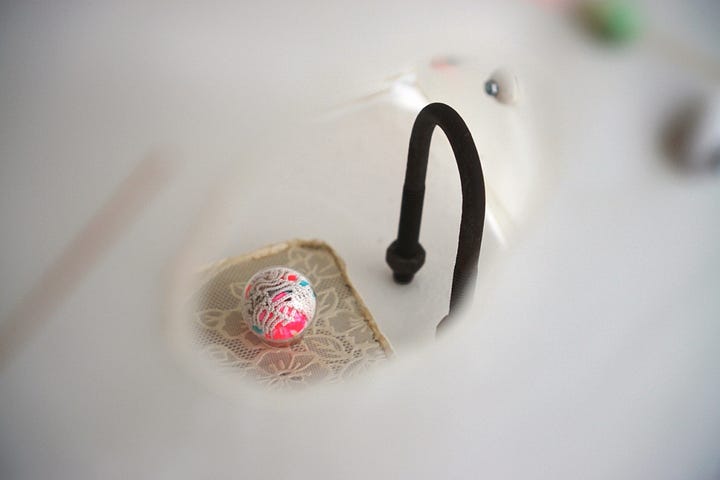
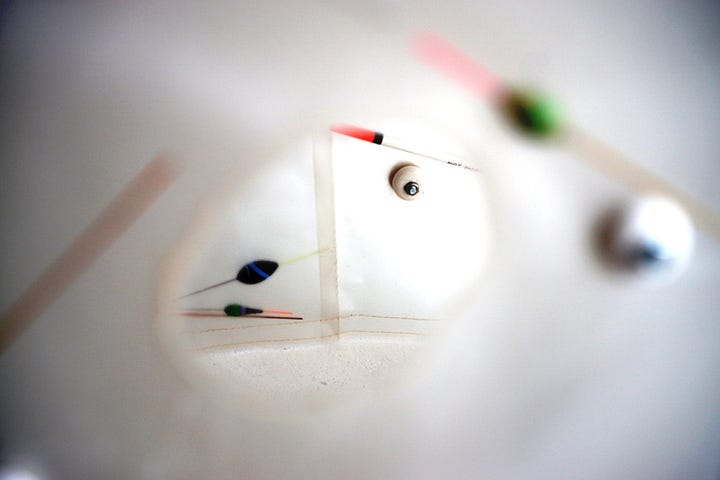
Ana Čvorović writes:
My process started in collaboration with Julianna Pusztai, psychoanalyst and researcher at Freepsy, where we began to question what a healing environment might look like in the context of free clinics. The spaces of free clinics are often multi-functional and improvised with the resources that are available. This presents a level of precarity, but also of potential for the relationship between 'internal' and 'external' to be explored. Aiming to investigate this interplay in a tangible way, I started experimenting with the idea of translucent walls and then developed a series of small-scale structures made of plaster, steel and various found and manipulated objects, assembled to form imagined psychoanalytic consulting rooms. Objects such as fishing floats and clock parts are embedded in walls and ceilings, making the consulting room's peripheral zones perceptible and open to activation. This perforation of borders allows points of entry and exit, reflecting the elasticity of low-cost clinics which can often be situated in visible and transient locations, subject to frequent alteration. As such, the sculptures themselves are built with a degree of precarity while embodying the possibility of alternative assemblages, of resistant forms of psychoanalytic work to poke through.
Ana Čvorović (b. Sarajevo 1981) came to the UK with her family in 1989, fleeing the impending civil war in Former Yugoslavia. A student at Chelsea College of Art, Brighton University and the Royal College of Art, Čvorović's installation-based work considers the role of borders and boundaries and the psychological effects of war and migration.
Čvorović’s solo exhibitions include Archipelago at Ballon Rouge, Brussels (2021) and Borders Unfold at Pi Artworks, London (2019). Recent residencies include Arthouse Jersey for a commissioned project ‘No Place Like Home; FAP, Lebanon (2022) supported by the Foundation for Art and Psychoanalysis; and Sculpture Space, NY, US (2018) supported by Arts Council England.
Čvorovic has been a recipient of numerous awards and grants including the Shelagh Cluett Award (2021), Arts Council England Grant (2019), a-n Artist Award (2018, 2020), and the Leathersellers Scholarship (2012).
Our Mind Maps
As a research collective of nine, bringing together psychosocial scholars, psychoanalysts, historians, literary and cultural scholars, an artist, an archivist, and a cultural sector worker, we are exploring fruitful ways of translating and exchanging our different knowledge forms, and also ways of making something new together.
One of our practices in the collective is that of converging around ‘Object Days’, where we all respond to the same chosen ‘object’, drawing on our own disciplines, theoretical anchors, sites of fieldwork, or clinical experiences. The ‘object’ may be a physical one, but equally an archival document, an idea, a written text, or an observation. During the ‘object days’, we all write short pieces, free-associate with references, or bring material objects that we would like others to respond to. Two of our objects so far have been the psychoanalytic couch and the clock, including the dimension of ‘time’.
Our ‘Object Days’ are committed to a kind of material archaeology, encompassing the activity of accumulating fragments of historical experience, often dismissed as insignificant or unassimilable. Our ‘Object Days’ are also driven by the wish to work alongside the sculpture and installation artist who is part of our collective, Ana Čvorović, and to take seriously the material dimensions of both her artistic practice and of our own research practice.
The mind maps are a way of capturing some of the work we do together during our ‘Object Days’. By constructing a mind map out of our associations, or a cartographic exercise of a day working together, we invite a heterotopic approach to history and memory. We shift away from any notion of a linear succession of events, and move to a spatial confrontation of the near and the far, the seen and the hidden, the side-by-side and the dispersed. We draw here on ideas of montage (Didi Huberman, Aby Warburg), constellation (Walter Benjamin) and psychosocial cartography. The mind maps aim to create interstitial zones of exploration and ultimately a deterritorialization of our object of knowledge. Knowledge obtained through montage creates a prolonged suspension of the moment of reaching conclusions.
The mind maps contain fragments and associations from our written pieces produced during object days. They have been designed by Hugo Coria, for which we are very grateful!
You can access the first Mind Map here.
Free Clinics Network
The Free Clinics Network brings together clinical institutions and practitioners around the world involved in offering free or low-cost psychoanalysis. The Free Clinics Network is relevant to both patients and psychoanalysts globally, aiming to promote shared practices among the clinicians and to widen access to psychoanalytic treatment.
In the Free Clinics Network, and in the context of the project FREEPSY, patients are regarded as co-creators of a context of care, and not ‘service users’. Psychoanalytic and other mental health practitioners are refigured as contributors to collective action and collective creativity, not ‘mental health providers’.
If you are an analyst working for an organisation providing free or low-cost psychoanalysis, please consider filling in the form below and become part of the network. Please share this information as widely as possible with your colleagues, patients and anyone else who might be interested.
Please fill in the Free Clinics Form to become a part of our Network.
But wait: a psychoanalysis for the people? For whom else would it be, or to whom else would it possibly belong? Why was psychoanalysis invented if not to care for the speaking subject, each speaking subject, in their fragile existence between the singularity of a lived experience and the universality of our being? Chris Chamberlin, FreePsy launch
Thank you for reading!




